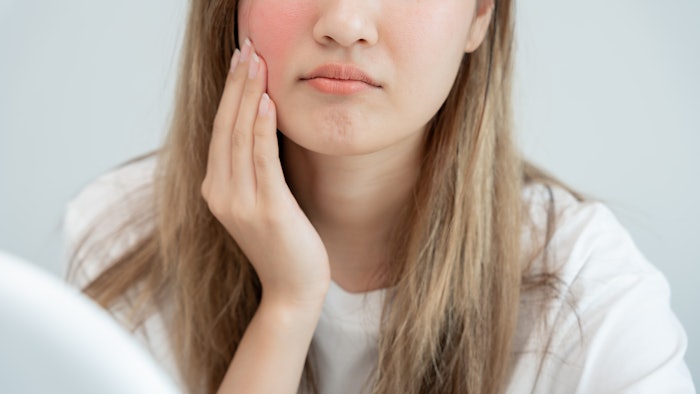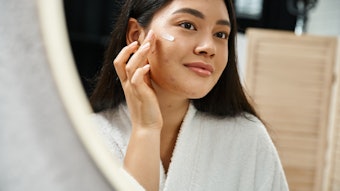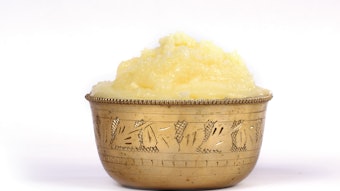
As a spa professional, you’re undoubtedly familiar with different skin types–including sensitive. When it comes to taking care of sensitive skin, there’s much more than what you may see on the red, irritated surface. Let’s explore some essential information to effectively care for this often tricky skin type.
What is Sensitive Skin?
Sensitive skin is one of the main skin types (along with dry, normal, oily and combination), and it experiences frequent sensory reactions. You’ll commonly see redness, dryness, flaking, scaly patches, blistering, bumps and rashes on this skin type. Sufferers may also report itching, swelling, burning and stinging.1 These reactions are often triggered by something the skin comes into contact with, including products we apply to our skin, fragrances we use, clothes we wear and foods we consume.2
Can Any Skin Type Be Sensitive?
Not all skin is sensitive, but all skin types can become sensitized. Though they sound similar, there’s a difference; the former refers to a skin type, while the latter refers to a caused condition. A sensitive skin type will routinely experience flare-ups in sensitivity, while “sensitized” refers to temporary sensitivity that can occur on any skin type.3 Because of this, clients may incorrectly believe their skin is sensitive.
For example, both sensitive and dry skin regularly experience flaking, redness and irritation. Those with dry skin may believe that they have sensitive skin. The difference lies in the physiological cause for why these two skin types behave as they do. Dry skin is typically more common in elderly clients and is often caused by dysfunction in the moisture barrier of their skin, while sensitive skin overreacts to stimuli that would not cause such a response in other skin types.4,5
What Causes Sensitivity
As much as we may want to know the cause, it can often be difficult to track down the exact reason our skin experiences sensitivity at any given moment. However, there are common triggers often related to underlying physiological conditions or lifestyle behaviors that have been found in clinical studies to cause sensitivity. Let’s discuss some of the specific conditions or behaviors that can be triggers.
Related: Rebuilding Sensitive Skin
1. Overuse of Active Cosmetic Ingredients
While a high concentration of actives can be great in some circumstances, their incorrect use can be detrimental for sensitive skin. Popular ingredients can potentially push sensitive skin beyond its limits including:
- Retinols
- Hydroquinone
- Certain AHAs (including glycolic and lactic acid) and BHA (salicylic acid)
- Physical, gritty exfoliants
- Chemical SPF
- Benzoyl peroxide
When used properly, these ingredients can be highly effective at achieving specific desired results in the skin, but those dealing with skin sensitivity should integrate these with a high degree of caution under professional guidance.
As a spa professional, you should perform a patch test as an additional step in the treatment before the full application of products with these ingredients. While this is a good idea for all skin types, this is an absolute must for sensitive clients. Apply products behind the ear and allow to sit for three to five minutes. If no reaction occurs, carry on with the treatment as planned. If there is cause for concern, examine the skin to adjust the treatment and your advice accordingly.
2. Allergies
Though allergies are typically associated with a runny nose and itchy eyes, they have also been found to be the cause of increased skin sensitivity.6 Sometimes referred to as allergic contact dermatitis, this type of sensitivity occurs when someone is exposed to allergens like synthetic fragrances, nickel, dyes, laundry detergents, certain cosmetic preservatives and even botanical ingredients.7
After such an encounter, an allergic reaction may produce signs of sensitivity, including redness, swelling, flaking, rashes or blistering. Clients with allergies will want to take extra care to review ingredients in their skin care products and may also want to consult with an allergist or physician. Of course, you should always make sure to ask your client about any allergies prior to treatment.
3. Skin Conditions
Connected to Sensitivity Beyond allergies, other conditions manifest as sensitivity. Dermatitis is a term used to describe various linked skin irritations that cause skin irritation, with “derm” meaning skin and “itis” referring to inflammation.8 Clients seeking a reprieve from sensitivity may be coping with perioral, contact, periorificial or another variety of dermatitis, and may routinely experience inflammation and increased sensitivity.
Likewise, eczema (a.k.a atopic dermatitis) is characterized by persistent, itchy, dry patches of skin. While more prevalent in childhood, eczema can also affect us as we age. This condition is specifically linked to sensitivity on the face, neck, legs and joints like elbows, wrists and knees.7
Rosacea is another concern for sensitive skin. As its name suggests, this chronic condition’s hallmark signs are redness and a rosy flush, though this is less visible in deeper skin tones. Rosacea is also connected with factors like blood vessel abnormalities, burning or stinging rashes and bumps that resemble acne.9
Clients with psoriasis are also likely to seek your advice on sensitivity. This chronic immune condition causes skin cells to multiply more rapidly than they should. Psoriasis often leads to inflamed, scaly sections of skin with susceptibility to sensitivity.10
Due to its potential link to health concerns, you should ensure that clients with sensitivity are also seeking the advice of a dermatologist, physician or other qualified health practitioner.
4. Genetics & Demographics
Some of us are gifted with naturally strong nails, healthy teeth, and lustrous hair, but our genetics can also be responsible for less-than-ideal skin effects. Skin can be prone to sensitivity without any underlying health or skin conditions, and clients may share this trait with family members, a strong indication that their skin type is genetic.11 Additionally, women are more likely to deal with sensitivity. While around 50-60% of men surveyed reported having sensitive skin, that number can be as high as 70% for women.1
5. Exposure to the Elements
Environmental stressors we encounter daily impact our skin. Wind, sunlight, extreme heat and cold are all known to bring out skin’s sensitivity and dryness, particularly when exposed for long periods and without protection.7 Advise clients to avoid excess exposure and to take necessary precautions before prolonged time spent outdoors.
How to Work with Sensitive Skin
Now that we’ve reviewed what sensitive skin is and how it comes to be, it’s your time to shine. Even with the challenges that this skin type poses, there are reliable ways to treat it, and your expertise is a major asset to your clients.
So, where to begin? Firstly, it’s good to know what to avoid. While potent actives may or may not work for sensitive clients, other ingredients should be avoided. Some skin care products are formulated with ingredients such as sulfates, parabens, and preservatives, like methylisothiazolinone, methylchloroisothiazolinone and alcohol.7,8 These ingredients are known to potentially worsen the symptoms of sensitivity (please note that fatty alcohols, like cetyl and stearyl alcohol, are generally tolerated well on sensitive skin).12
Ingredients for Sensitive Skin
On a positive note, there are many accessible and natural ingredients excellent for sensitive skin. Oat, aloe vera, chamomile, green tea and calendula all have soothing properties that tackle the irritation, redness and stinging sensation sensitive skins are suffering from.9 Ceramides, hyaluronic acid, squalane and niacinamide can also be used to hydrate and balance the skin’s moisture barrier, addressing dryness and flaking.
There are also sensitive skin-friendly alternatives to popular active ingredients; botanical extracts from plants such as bakuchiol and tara tree are gentle options to reach for instead of conventional retinols for smoothing and visibly enhancing the look of collagen. African potato is also a fantastic ingredient to brighten hyperpigmentation in place of hydroquinone. Furthermore, all-mineral SPFs are a safer choice for sensitive skin over chemical formulas.
Getting Sensitive
Sensitive skin and its sometimes painful effects can be quite persistent. Those living with this skin type may have dealt with the issue for years, and many have tried countless products hoping to address the symptoms, only to find that they worsened the issue. However, with your professional touch and expertise, clients can discover what works for them. Finding solutions may take trial and error, but you are an invaluable guide for your clients. You can lead them toward soothing ingredients that will leave their skin calm, happy and healthy.
When you know how to manage all skin types, you’ll increase client trust in your abilities, securing their long-term business and your spa's success.
References:
- https://doi.org/10.3389/fmed.2019.00098
- https://doi.org/10.1016/j.fct.2020.111137
- https://doi.org/10.1016/j.xjidi.2021.100031
- https://pubmed.ncbi.nlm.nih.gov/17642836/
- https://www.ncbi.nlm.nih.gov/pmc/articles/PMC6533878/
- https://doi.org/10.1016/j.anai.2022.04.013.
- https://www.medicalnewstoday.com/articles/sensitive-skin#causes
- https://my.clevelandclinic.org/health/diseases/4089-dermatitis
- https://www.medicalnewstoday.com/articles/160281#causes
- https://www.niams.nih.gov/health-topics/psoriasis
- https://doi.org/10.1111/exd.14459
- https://www.researchgate.net/publication/37498443
Brian Goodwin is an award-winning international educator for Éminence Organic Skin Care. As a master medical esthetician, master herbalist and consultant, Goodwin leverages more than 15 years of spa industry experience to bring fun, engaging education to spa professionals around the world.











